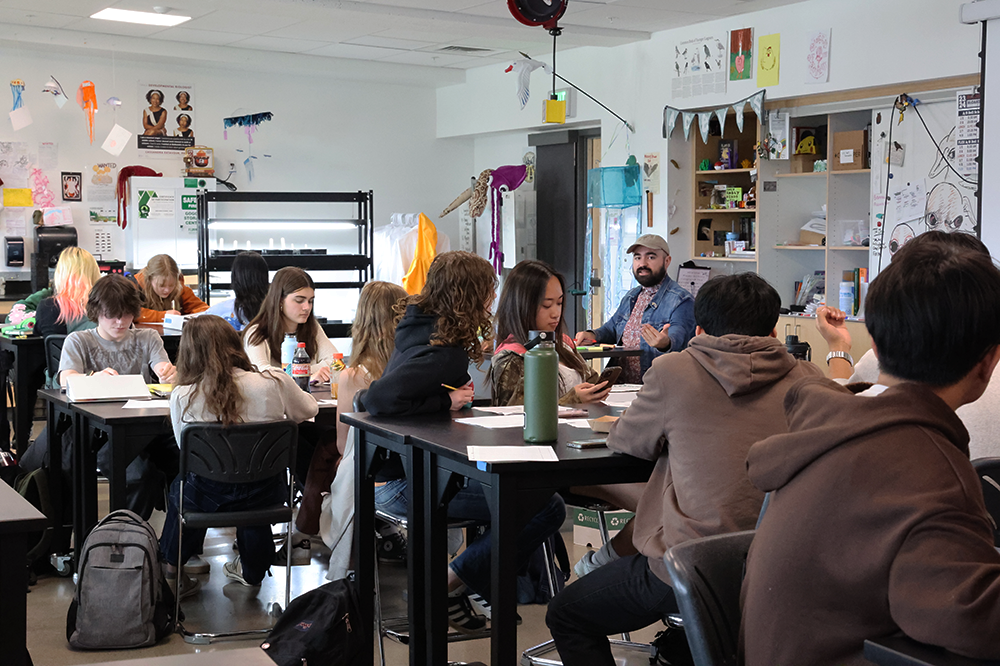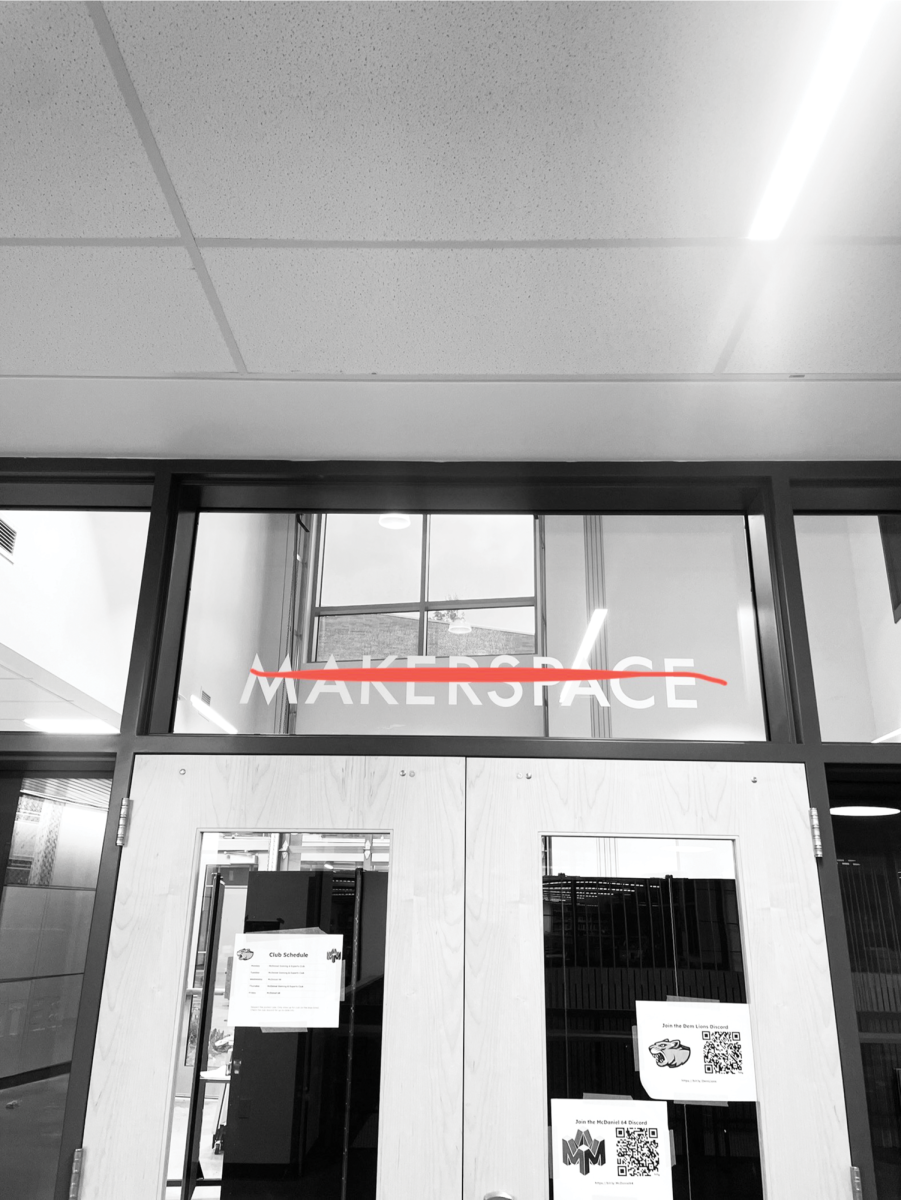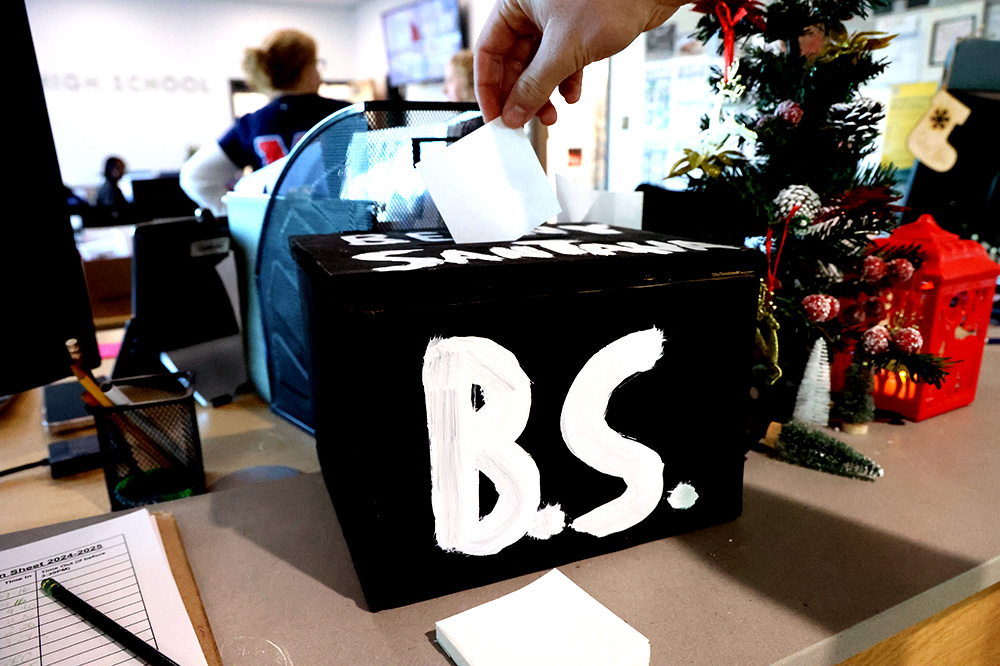As AP exams are upon us, and questions regarding AP scores and students’ levels of preparation after an abnormal series of events remain in the air.
While some classes were able to adjust better than others, there’s no doubt that these events had some effect on staff, students and the pressures of AP exams.
AP Psychology teacher James Jeffrey-West notes a variety of challenges, including the difference in content across AP classes, that potentially produced adverse effects amongst the classrooms.
“The deal with AP classes is that they’re not all equal in terms of the amount of content you have to cover,” he said.
Some courses like AP Psychology, are equivalent to one college semester’s worth of work, while other AP classes, like AP US History, review two college semesters worth, adding additional stress for some classrooms.
As Jeffrey-West continued to explain, many teachers plan out their content and schedule from the start to the end of the year, putting a large dent in original planning and the structure of each classroom.
“It was weirdly challenging just to rebuild the calendar,” Jeffery-West said. “It must have taken me two and a half hours.”
Anthony Aceves, the AP Environmental Science teacher, expressed the same concerns.
“I organize it in a way where all my students are able to see my content from the very start…but shifts between the strike and the snow storm have definitely thrown a wrench into my game plan, and I’ve had to make some serious adjustments,” they said.
With a variety of content, teachers had to find unique ways to squeeze in all the missed content in order for students to be adequately prepared. These methods included quickening the pace of coursework, reducing in-class discussions or even skipping subject matter.
“We covered content during the winter week, where most teachers did not…although we had like 10, 20 percent attendance,” Aceves said. “Because of the lack of time and need to learn content, many kids later struggled with more concepts further throughout the year.”
Aceves added that with skipping content, the foundations and understanding of upcoming units were weakened.
Junior CJ Vickers, who has four AP classes, also felt a big shift.
“We were just getting into the groove of school,” Vickers remarked. “[The strike] definitely interrupted the continuity and messed up the flow of the year.”
Despite these challenges, some students were able to recover and push themselves to where they needed to be.
Ryan Ghan, AP Human Geography and AP Macroeconomics teacher, feels confident and impressed with his group of students.
“AP Hug, it’s a good cohort, it’s a strong cohort, they’re working hard and we’re totally caught up,” he said.
Ghan managed to print several papers for homework before the strike, allowing students to keep up with textbook learning, bringing them back without a mass amount of lost learning. However, while Ghan has both classes all caught up, he’s noticed a shift in attendance patterns that could be correlated with the strike and ice storm.
“Tardies were strange this year,” Ghan explained. “My first and fifth periods, I’ve never had AP classes start with just six or seven kids, and there were a few times where it was that bad, it’s now not that bad…but that was surprising.”
Ghan explained that while senioritis is a frequent and normal trend, the class of 2024, which started high school during COVID, in addition to this year’s abnormalities, could have played a role with the acceleration of senioritis, earlier on in the school year.
Amelie Carter, a junior taking two AP classes, found that the loss of time created a mild rift or loss of motivation for some.
“I think it definitely cramped all the work all at once,” Carter said. “It just made it all so much more stressful.”
Regardless of all these factors, questions remain concerning AP exam scores and whether this will influence lower scores. Some teachers feel confident in their students’ ability to be prepared while others may feel more hesitant.
Carter estimates that AP scores won’t look as successful as the past few years, putting PPS schools below the national average. Vicker agrees.
“You only have so much time before that test at the end of the year that every lost moment [and] every lost class is definitely impactful,” Vickers said.
Ben Grosscup, AP Literature and Composition teacher, stated that when it comes to scores this year there may be some fours that would have been fives.
Nevertheless, given the lost time and obstacles it’s created, there were some potential benefits, according to Grosscup.
“I think having to adapt, learning to adapt, is also pretty good,” Grosscup said. “I was impressed with the kids. I think that they did a good job of managing.”
In the end, teachers and students won’t know if AP classrooms were deeply impacted from these current events until test results come out in July.









